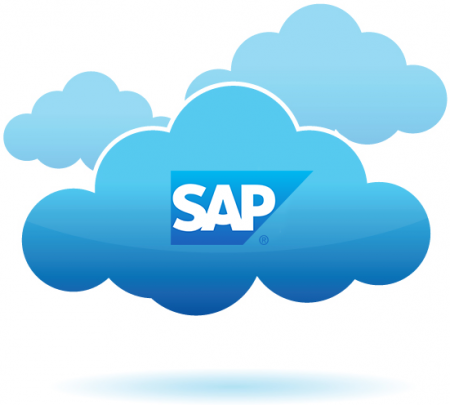SAP and Google Cloud: They actually need each other


This column typically deals with new innovations, even if they're applied to attacking age-old challenges like Customer 360 or security management. It draws from the 10 - 20% of the IT budget that gets left over for innovation. As for the remainder, most IT organizations regard existing heartbeat systems with the age-old maxim of "if it ain't broke, don't fix it."
So for the past 20 years, the notion of replacing your ERP system was probably pretty far down the list of priorities. Your organization won't replace its ERP system or transaction database unless it has a gun to its head.
The last time that happened was in the run-up to Y2K in the 1990s. While some opted to fix their systems, many more replaced them. Welcome to the great age of ERP migration, the period that put Oracle and SAP on the map.
Fast forward to the present, and it's déjà vu all over again as the cloud becomes the great disrupter. Ovum estimates SaaS (Software as a Service) alone will grow at 18% CAGR to a $92 billion global market by 2020. Oracle expects roughly 80% of its client base will embrace cloud in the next decade, and already books $1 billion in cloud business each quarter. And if you run SAP Business Suite, support will sunset by 2025.
That brings us to SAP and Google Cloud. SAP has a broad portfolio of enterprise application SaaS offerings encompassing finance, HR, customer engagement and commerce, sales, service, marketing and e-commerce, and sourcing, among others; for now, the main missing piece is supply chain management.
SAP's cloud enterprise applications portfolio range of offerings compares favorably to Oracle with one exception. Oracle's SaaS portfolio mostly comes from a common code base, whereas SAP's originated from separate products like SAP S/4HANA, SAP Business One, SAP Business ByDesign, Ariba, Success Factors and others. Another differentiator is that, Oracle controls its fate by running on its own hardware, whereas SAP relies on certified third parties.
As for Google Cloud, it enters the market as the most credible challenger to Amazon AWS and Microsoft Azure. There are huge barriers for even household names like IBM and Oracle to challenge the AWS/Azure duopoly, but because of its deep pockets, don't count Google out. Over the past three years, it has poured over $30 billion into its cloud platform with hardly a dent in parent company's Alphabet financials, and over the past year, it has been the hot spot for recruitment inside the Alphabet family.
Besides deep pockets, Google comes to the party with highly differentiated technology in areas such as search, operations automation ("NoOps"), artificial intelligence, container orchestration, and data management. Its pioneering work in AI has led to mindshare leadership in deep learning with the now open sourced TensorFlow framework; its open sourced Kubernetes project has become the de facto standard for container management; and elements of its data stack, such as Cloud Spanner and BigQuery, are not matched by other cloud providers.
Google is hungry to build the enterprise business, and over the past year we've seen some stark differences. SAP was one of only five marquee sponsors (the others were Accenture, PwC, Intel, and Veritas) at its annual NEXT conference -- and the only one known for enterprise applications. For now, the SAP-Google Cloud relationship encompasses certification of SAP HANA on Google cloud, some G Suite integrations, and support of Google machine learning capabilities.
We think there's a lot more headroom in this relationship: Google Cloud's aim for enterprise credibility and SAP's need for maximizing competitive differentiation with Oracle, especially with SaaS enterprise applications. For Google, it needs strong enterprise partnerships to build credibility in this market. For SAP, it's about leveraging Google's advanced technologies.
It starts with Google's NoOps automation approaches for managing and optimizing running of HANA. Kubernetes container orchestration and microservices could in turn unify SAP's diverse SaaS application portfolio (which comes from multiple code bases) and enable synthesis of new products combining capabilities or related applications, such as CRM and mobile enablement. SAP could exploit Google Cloud Spanner, a unique, globally distributed transaction database that could become the foundation for a new generation of back office ERP for financial services, a longstanding gap in SAP's enterprise applications installed base.
And then there's AI. Yes, SAP has begun mobilizing with machine learning, baking it into new predictive analytics editions of Business Objects. Now imagine marrying deep learning capabilities from Google Cloud Machine Learning (based on the open source TensorFlow libraries) with SAP's enterprise applications that could make the underlying business processes intelligent and self-optimizing. In turn, it could also be used in conjunction with SAP Vora big data integration, which recently added time series, graph, and JSON data support.
There are the strategic advantages from being a first mover. Yes, SAP already has relationships with AWS and Azure, but there, it is one of a crowd. Now here, SAP has become Google Cloud's first major enterprise software partner. There are advantages to being at the head of the line. Google heavily trumpets its new SAP strategic relationship.
While both SAP and Google Cloud are too proud to admit it, they really need each other.